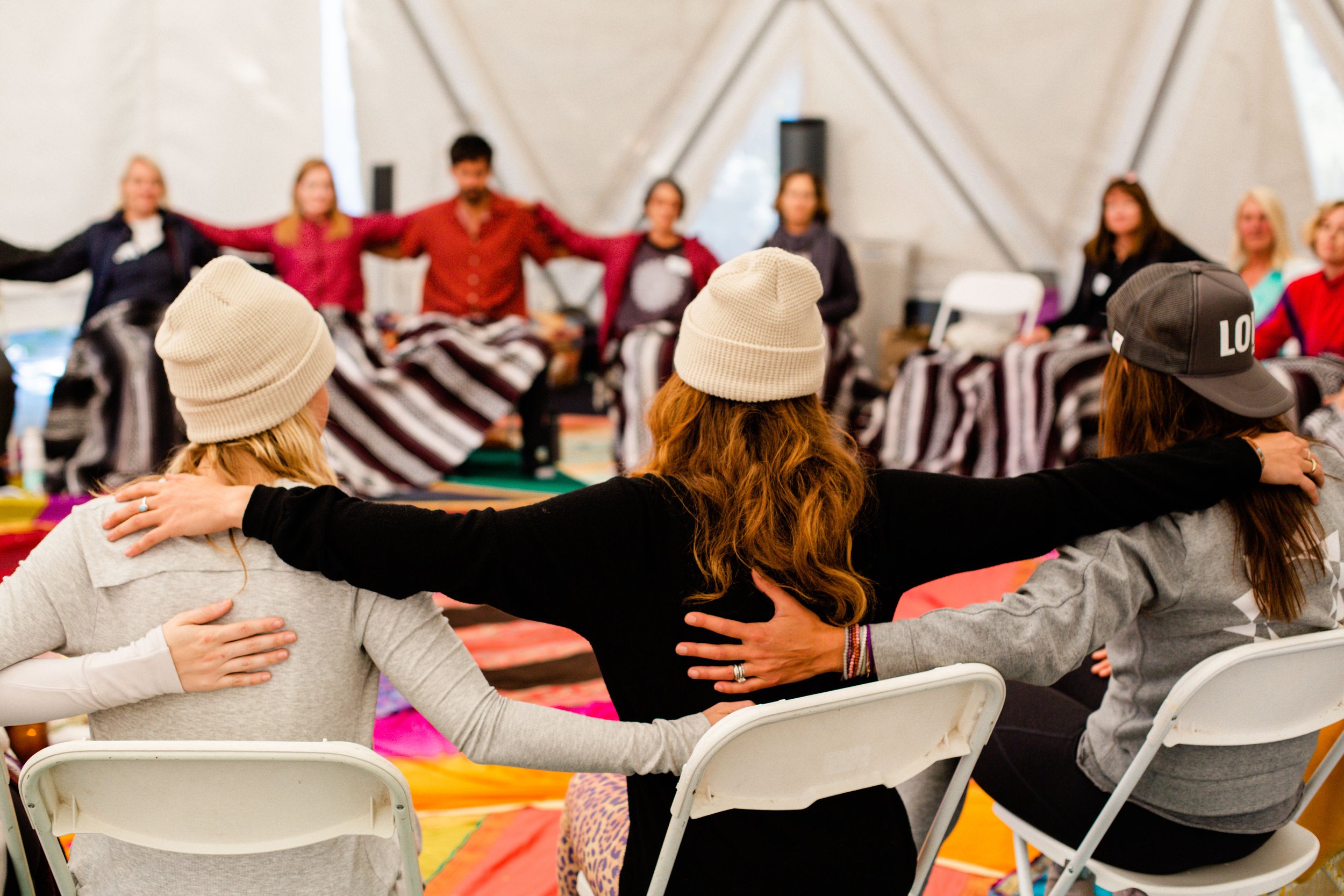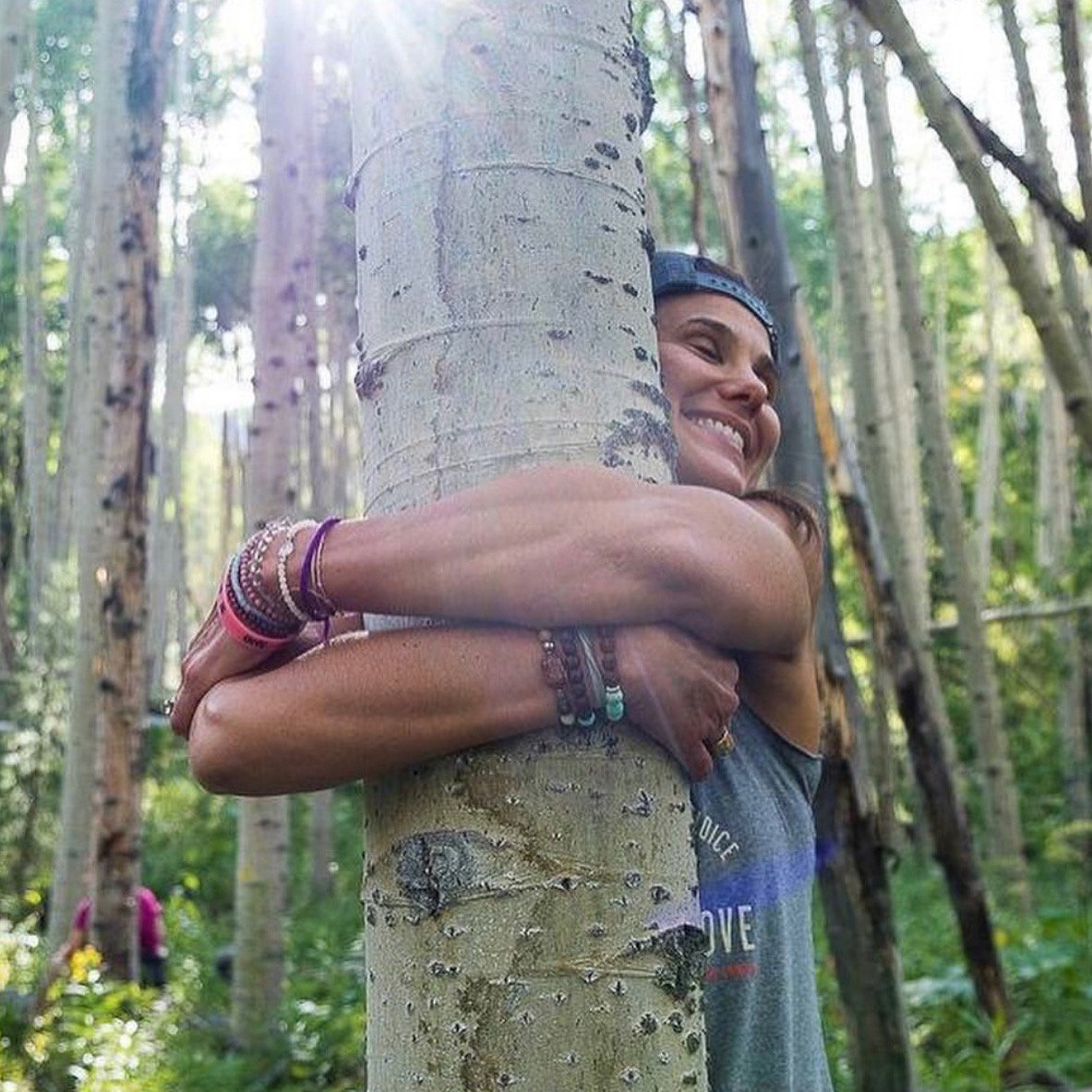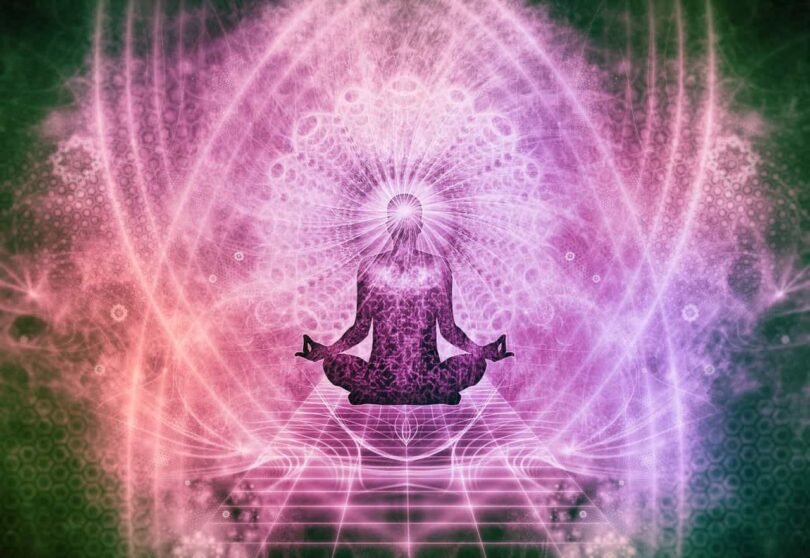Founding & Emerging Inspiration of Lead with Love: University of Santa Monica (USM) & Columbia University’s Spirituality Mind Body Institute’s (SMBI) Work
June 2022
Dear Friends,
Founding & Emerging Inspiration of Lead with Love: University of Santa Monica (USM) & Columbia University’s Spirituality Mind Body Institute’s (SMBI) Work
A few years ago, our founder Gina Murdock went through USM’s Spiritual Psychology program. It was a big piece in the founding impulse of Lead with Love. The basis of the USM program is to learn principles and practices of spiritual psychology that supports each of us in opening the eye of one’s heart, our spiritual eye, and learning to operate within an upgraded operating system aware that each of us is a divine being having and using a human experience in service to awaken to a greater consciousness.
Essentially, the principles & practices at USM are all about transcending the ego's operating system and making soul-honoring choices throughout our lives towards living a more fulfilling and meaningful life.
The USM program highlights the suffering that can occur when we experience ourselves as separate from our loving being, when we lose connection or awareness of connection with the loving that is our very nature; essentially when we solely focus on our ego’s false narrative. USM’s focus is on strength of heart, courage, and wisdom to make small choices of loving-kindness, compassion, and upliftment that assist us in following our inner guidance.
There is no need for esoteric understanding to be loyal to our soul; when we choose things that are positive, we are in harmony with our soul’s essential nature.
This, alongside Gina’s yoga practice, deep joy for life, and desire for community was the impulse that drove her to start Lead with Love.
The work of Dr. Lisa Miller and the Spirituality Mind Body Institute (SMBI), supports a modern scientific understanding of spirituality through the groundbreaking discovery of “the spiritual brain”, the biological basis of spirituality. 20 years of clinical and medical research shows the high-spiritual brain as healthier and more robust than the low spiritual brain. And the high-spiritual brain is thicker and stronger in exactly the same regions that are weak in depressed brains. Essentially, spirituality protects against mental suffering.
The research illuminated each of us always has two modes of awareness available to us: achieving awareness and awakened awareness. Achieving awareness is the perception that our purpose is to organize and control our lives. In a state of awakened awareness, we see a bigger picture of reality, integrate information from multiple sources, and perceive ourselves as seekers on our own path.
A significant conclusive point to Dr. Miller’s research is as follows. Our lives and culture should invite us to use our awakened brains to become aware of the bigger reality that we otherwise miss (when solely in ego), and to translate that information and inspiration into decisions and actions that serve the highest good. We are healthier, happier, more resilient and connected as a result. As Ron & Mary at USM so wonderfully say, we are spiritual beings having a human experience.
The USM Spiritual Psychology program and SMBI go together, merging science with applied practices and principles. Universal spiritual experience includes: love, in the fabric of relationships and as a sacred reality; altruism, as a commitment beyond the self with care and service; unifying interconnectedness, as a sense of energetic oneness with other beings in the universe; contemplative practice/transcendence, such as meditation, prayer, yoga, or qigong; and religious/spiritual reflection and commitment, as a life well-examined.
As we continue to deepen our work at Lead with Love, we know integrating our spiritual connection is essential to our wellbeing, and that an awakened heart is the seat of unity with all life. Strengthening an awakened awareness to interface with the spiritual nature of life, we stay in dialogue with life, benefit from creative guidance, experience deep love of self and other, and embrace life. It is our internal system that guides us to a loving presence and sacredness in daily life. Through it and together, we care for a more ethical and sustainable world, and receive more meaning and purpose from our lives.
Each moment we have a choice how we see ourselves and our world. We can live chasing goals and rewards, lost in worries and regrets, or we can awaken to the true fabric of the world – an evolving tapestry that we both behold and help create in which every thread matters, and no strand stands alone. We can live in isolation, or we can awaken to the common knowing and communication among all living beings and to a deep-felt alignment with the source of consciousness, and from this let our love shine!
Anne White, Executive Director
LWL OFFERINGS
The Aspen Institute Presents Dr. Lisa Miller on The Awakened Brain: The Neuroscience of Health, Healing, and Resilience
On August 3, 2022 - In Collaboration with Lead with Love
Wild Yoga: Tuesdays - June 21st, July 13th, August 9th, 5:15pm at Hallam Lake
Sound Journey: Tuesdays - June 28th, July 5th, 5:15pm at Hallam Lake
Aspen Institute Yoga: As a service to those participating in Aspen Institute’s Programming this summer, LWL will be offering yoga classes, promoting health and well-being while learning!
Executive Director, Anne White speaking on Neuroscience of Spirituality at Drishti Beats Music Festival: July 8th-10th Snowmass Village
Drishti Beats Music Festival explores the symbiotic connection between music, yoga, and the outdoors. All of our carefully selected yoga teachers and classes feature musicians who will be there for you creating a beautiful and magical experience for you in every moment! Our music lineup in the early evening and into the night highlights some of the top artists of downtempo electronic chill and house music for you to dance the night away.
MINDFULNESS
Q&A: Dina Kaplan, Founder & CEO of The Path, a leading authority on meditation.
What should people know about mindfulness and meditation?
I would love for people to know that we can train our minds, just like we can train our bodies at the gym or by hiking or stretching. Mindfulness and meditation let us train what we call in Buddhism the "monkey mind," which each of us can relate to, the feeling that our thoughts are swirling and a bit out of control! With mindfulness, we can cultivate calm in our minds, we can cultivate focus, and we can train ourselves to be more compassionate with people, including with ourselves. I do believe it is like a superpower!
Why do you encourage people to practice it in their lives?
The Buddha said that our nature, before we train our minds, is to suffer. And we will all experience suffering, or we can call this "dissatisfaction" in the modern world. But when we practice mindfulness on a consistent basis, we live with a lot more calm, and we also live with a lot more happiness — and best of all, we learn that our happiness can come directly from ourselves, from within, so we don't need to rely on anyone else or anything else to feel happy, grateful, and even during the day. And best of all — no one can take that away from us.
What kind of benefits does a practice have in one's life?
Practicing mindfulness consistently reduces inflammation in the body (so important right now!) and increases our body's immunity. It decreases the production of cortisol in the body, the stress hormone, and gets us away from a fight or flight response, when we can't quite think straight, and towards a feeling of calm and equanimity during the day (or at least most of the time ;)). But for me the biggest benefit is that it gives you a pause between anything that happens during the day — and how you want to choose to respond. To me this is freedom, and it gets you away from saying or doing things you might regret later, towards a powerful feeling of having the freedom to choose your responses throughout the day. It's such an incredible thing to experience, especially when you witness that pause for the first time and feel that sense of freedom.
How does it tie into body, mind, spirit movement?
Traditionally Theravada Buddhist meditations were practiced as sitting meditations, and often people would do this and not move for an hour at a time (really!). Now, modern meditation teachers encourage people to do walking meditations in addition to sitting. This helps to bridge the gap between training our minds to be mindful not just on the cushion, but off of it as well. Also, I think in the modern world people are accustomed to moving, and really enjoy this, so it is important for meditation to evolve and allow people to cultivate mindfulness while they are moving, especially if this means more people will practice mindfulness meditations and enjoy doing it regularly!
How has it benefited you?
Mindfulness has completely changed my life. I used to help run a tech company, and during that time I started having panic attacks. They became so frequent, and so scary, I stopped walking by myself anywhere, and I was living in New York and on a start-up salary, but I couldn't take the subway by myself either. I lived in fear of passing out in the middle of an intersection in Manhattan and having a taxi run over me (very macabre, I know!). I was also very stressed and didn't have the confidence to be myself — I would do or say what I thought others wanted to hear from me. Mindfulness helped me to get healthy again. I feel calm now throughout the day, and I know I will never have a panic attack again. I am also mindful of my words and actions, and although I am still working on this, I am developing the confidence to be myself, even if I am quirky and funny or at least trying to be!
How did you find your personal practice?
After running the tech company, I did a 2.5 year trip around the world, and one day, when I landed in India, I followed a cute guy walking off the plane behind me — to a meditation retreat because I hadn't made any plans for India. It ended up being a 12 day silent Vipassana retreat, and although I didn't quite know what I was getting into, I definitely learned how to meditate. Six months later I did another Vipassana retreat, and that is now my home practice, watching the breath and following sensations in the body — traditional mindfulness practices. But I have now studied many different meditation techniques around the world, and each morning I think about what I want to cultivate in my mind, or what I want to bring to my day, and I'll practice the technique that will help me to cultivate this in my mind. I love our Meditation Teacher Training program, because in it, I teach many of these techniques, so anyone who takes the program graduates with a certificate to teach meditation — and also has, in just three months, a toolkit of techniques to help them train their minds for whatever they want to accomplish that day. It's very powerful, and in the end I think meditation makes each of us powerful — in just the way we want to be.









